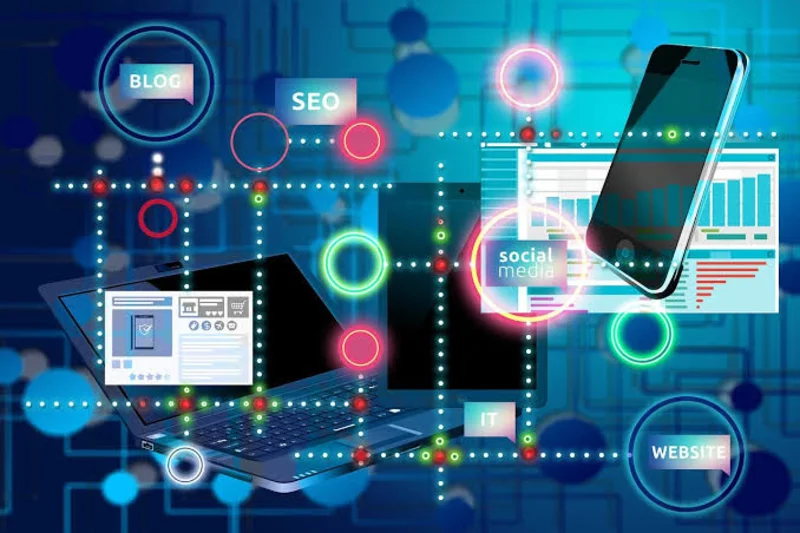We cannot be grateful enough for living in a world where good speed internet is accessible for all. The benefits are countless and we seem to rely on it greatly. Businesses, healthcare, entertainment, education, and work, all major areas of our lives seem to revolve around the availability of a fast-speed internet connection. It will not be wrong to say that without the presence of steady internet access, our routine activities seem to come to a halt.
However, thanks to high-quality providers like Xfinity internet for instance, that ensure smooth and faster speed connectivity and a cost-effective price, making seamless internet access feasible for more people. However, as much as the internet coverage has increased over the past few years drastically, there has been a rising concern of cyber security along. With the increase in internet usage and accessibility, there has also been an increase in cybercrimes and hacking practices. Therefore, it has become extremely important to stay cautious and keep yourself protected online. Simple yet effective measures can save you from getting into any big trouble. So without any further ado, let us get started with how you can ensure maximum safety while using the internet.
Table of Contents
Avoid Posting Personal Information
Be cautious when sharing personal information online. This is because whatever you post online can be visible to all. Therefore, it is better to think before you post. Sharing any personal information online, with someone you do not know well can be a big mistake. Sensitive information like phone number, car number, house number, credit card number, PINs, work history, etc. should be carefully protected. The same is the case when posting photos. You should not post photos on public accounts as these pictures can be copied and shared further without your consent. When posting pictures, be sure to use privacy settings so you can limit access to them, as per your choice.
Be Aware of Malware and Phishing Scams
Be aware of phishing frauds and techniques that can trick you into giving out your personal and confidential information. Be Cautious of emails and attachments from unknown sources. Clicking on any such suspicious links or ads might land you in much trouble. This is because they are usually carrying malware that then enters your system and harms it.
Hackers and scammers usually target online banking sites, PayPal accounts, eBay, or other popular sites to get your credentials and misuse them.
Use Strong Passwords
Your password is your shield to safeguard your accounts, so make sure you come up with a strong password that cannot be cracked. Make sure your password consists of alphabets, uppercase, lowercase, numbers, and special characters and is a good blend of all. Avoid using phrases or personal information as passwords as they are still risky.
It is also a good idea to use two-factor authentication since it adds an extra layer of protection. But before you set up this plugin, it’s essential to understand what is two-factor authentication and how it can benefit your account. Two-factor authentication can initially seem a little confusing, but it’s a straightforward concept. Instead of logging into a site with just one thing (a username and password), you have to have two things—a username and a second code that can only be used once. After your password is verified, it will send a verification code to your mobile number. Thus even if someone cracked your password but does not have your phone cannot access your account.
Make use of Parental Controls
Parents should always keep a close eye on the online activities of their kids. Using parental control options can be a great help to ensure maximum cybersecurity of their children. Contacting your internet service provider to know more about parental controls is a good idea. Also, make sure not to allow your kids to use webcams or talk to strangers online.
Make Back-Ups
You should always make it a habit to create backups. Virus attacks are unpredictable so it is always better to stay on the safe side. Installing an antivirus can ensure effective protection against malware. You can also use Windows Defender and other malware protection programs. Perfect computer security does not exist so it is better to make backups of important data as part of your routine to avoid any losses.
Updating your Operating System and Software
Most of the updates released by the developers are intended to reduce any security issues. Therefore, you must ensure that your operating system is running on the latest updates. Older versions of operating systems might not get updates and therefore should be avoided.
Wrapping Up
It is a fact that there are hackers out there sniffing for any loopholes to invade a network and steal sensitive information. So staying cautious and following the aforementioned safety measures can help steer you away from any such unwanted trouble. Make sure that you implement these simple yet effective tips to ensure maximum protection online and keep your data safe.
Visit the rest of the site for more articles.

